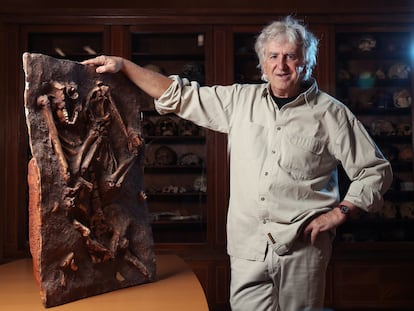
Juan Luis Arsuaga: ‘The human mind is a permanent aberration’
In his new book the paleoanthropologist and co-director of the Atapuerca Foundation describes the origin of the human body, which has determined what we are as a species

In his new book the paleoanthropologist and co-director of the Atapuerca Foundation describes the origin of the human body, which has determined what we are as a species
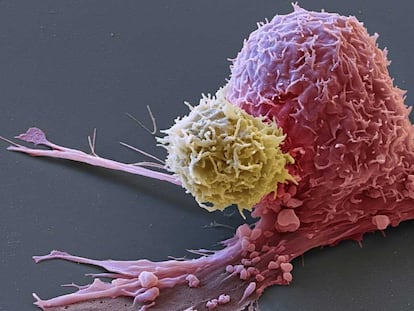
Eight patients responded positively to an experimental treatment that combined a vaccine using mRNA tailored to each patient’s tumor and conventional drugs
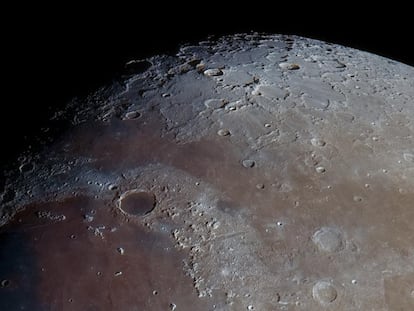
The Japanese probe ‘Hakuto-R’ is attempting a historic landing in the Atlas crater, within the unexplored Mare Frigoris
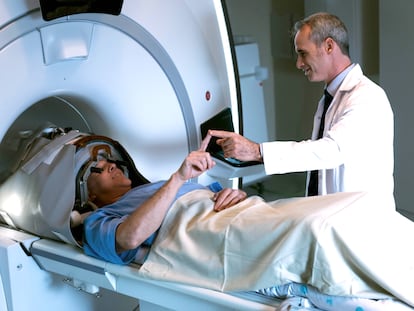
A study in monkeys and human patients shows how the blood-brain barrier can be crossed to allow the delivery of drugs that, in theory, could treat Parkinson’s and Alzheimer’s
The European Space Agency’s ‘Juice’ probe is set to begin an eight-year journey to one of the most hostile environments in the Solar System to explore some of the moons of the giant planet

The analysis of more than 30,000 patients in Europe, America and Asia suggests that fine particles cause tumors

In 2024, the pilot will become the first Black man in history to ever fly to the moon. He spoke with EL PAÍS about the importance of the Artemis II space mission

A new study on lecanemab and other similar drugs reveals a volume reduction of unknown consequences that experts are divided about
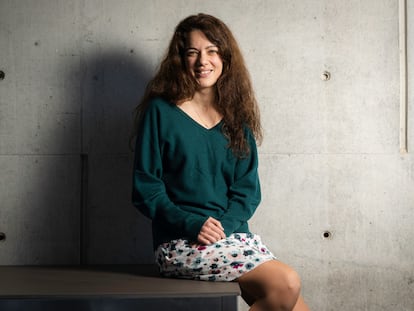
The geneticist has just received a $2.2 million grant to research why eggs don’t age like the other cells in the body
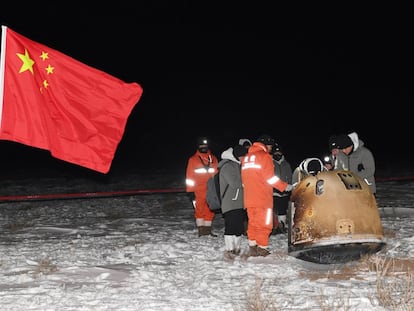
The ‘Chang’e 5′ probe has found that impact glass beads on the lunar surface contain the precious resource

The man in charge of the new ship that will take astronauts to the Moon discusses the next manned missions to the Earth’s satellite and the possibility of people living there

Radar images taken by a probe in 1991 suggest there was an eruption on the planet that was double that of Hawaii’s Kilauea volcano

The case of American Victoria Gray shows the hope of new CRISPR therapies, but also their problems: they will cost about three million dollars

The scientific community lashes out at China due to the secrecy surrounding the health of the three girls that were ‘edited’ by He Jiankui
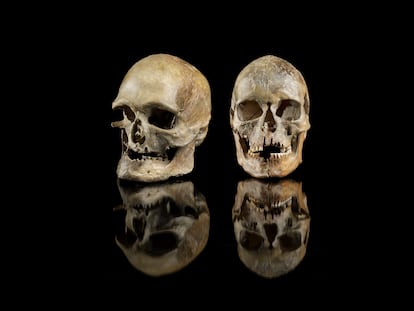
The remains of a hunter who lived during the last ice age reveal that the Iberian Peninsula was perhaps the sole refuge for humans on the continent

An analysis of 200 earthquakes confirms the existence of a fifth layer of the planet, the deepest and most unknown one
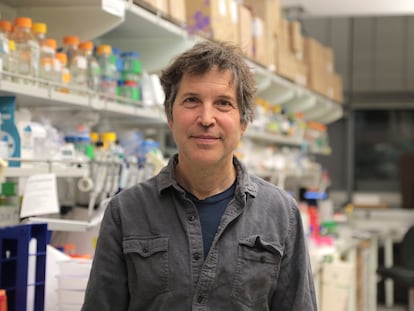
The researcher is one of the creators of deep learning artificial intelligence systems that generate proteins that have never existed in nature, which could usher in a new era for science and medicine
Researchers found an unusual collection of bison, wild bull, deer and rhinoceros craniums near Madrid, and believe they likely served ceremonial purposes

The US and Europe face the challenge of sending probes to the most unknown planet in the solar system by 2050

Thanks to years of research into the respiratory syncytial virus, scientists were able to develop Covid-19 vaccines in record time
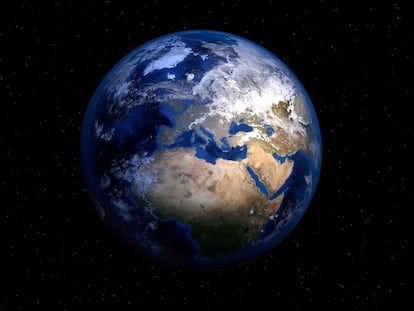
The decrease of the rotation velocity of the planet’s inner core has imperceptible effects for humans, but it is essential to understand
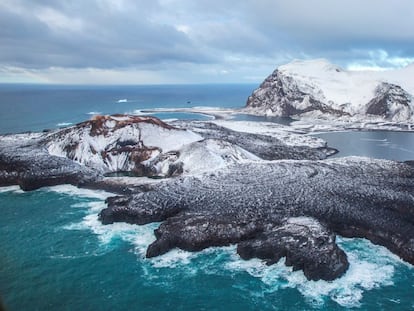
New research based on seismic waves suggests that the innermost level of the planet is losing speed and may be spinning in the opposite direction to the surface

The scientific community is aghast at He Jiankui’s return after three years in prison and compares him to Nazi doctors

The astronaut was an outspoken character who did not fit with the typical NASA profile
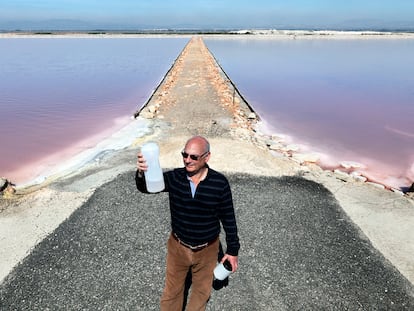
A study by a group of Spanish scientists demonstrates how to create new gene-editing systems with molecules that no longer exist in nature
The probe was the first ever to record marsquakes and reveal the planet’s active volcanic regions
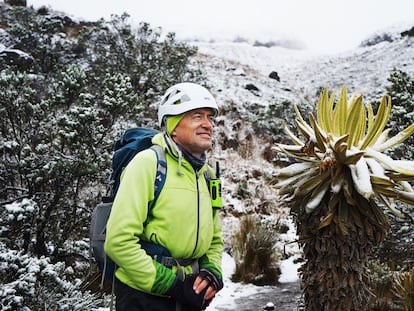
Jorge Luis Ceballos, his country’s sole glaciologist, will probably see his favorite ice mass disappear before he retires in three years